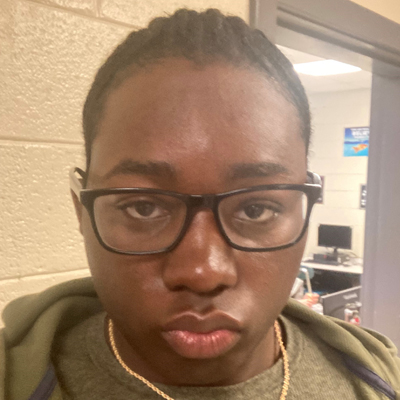2024 Mental Health Essay Contest Awardee: Honorable Mention
How the Neglect of Mental Health Within Black Communities Causes Underlying Issues
Kyle, North Carolina

In episode 1, season 2 of the popular 2000’s show Girlfriends, Joan Clayton, one of the main characters of the show, speaks about seeing a therapist. Maya Wilkes (also a main character) says “Therapist? You’re going to therapy? Joan, girl, black people don't go to therapy girl; they go to church.” I remember watching that part and wondering why black people do not go to therapy, especially African Americans. With all of the traumatizing things that have happened to African Americans in America, why not seek out professional help?
Well that question isn't easy to answer, especially when there are multiple answers. Two reasons why black people often don't attend therapy are stereotypes and religion. A stereotype defined by oxford languages is “a widely held but fixed and oversimplified image or idea of a particular type of person or thing.” Stereotypes like the “mandingo,” the “strong black man,” and the “strong black woman” are key examples of the over-saturation of black characteristics.
When slavery first started off in America in the year 1619, black bodies were forcibly employed to do hard labor taking the heavy weight off of their white enslavers. Working out in the hot summer sun or the freezing winter nights was reality for black folk. Working in these gruesome conditions gave way to stereotypes like the “strong black man/woman.” Although they sounded like a compliment at first, the trope eventually was unveiled for the racist implications it held. Through these stereotypes, terms like mandingo were born. The term mandigon was used by enslavers and auctioneers to promote the strength, breeding ability, and agility of muscular young black men. Although it's been years since terms like “mandingo” have been used to describe black men, it doesn't eliminate the stigma it once up held, and stereotypes like these made it harder of black people to admit they need and when they did they were often ignored. A 2016 study by the Proceedings of the National Academies of Science found that 40% of first and second year medical students endorsed the belief that “black people's skin was thicker than white people.” In that same study it was found that “trainees who believed that black people are not as sensitive to pain as white people were less likely to treat black people’s pain appropriately.”
It is clear that when health is denied and disproportionately available, it disparages those who it discriminates against from seeking it. As the old adage says, “when one door closes another one opens,” which is why many black people often turn to church instead of healthcare, where they often were ostracized. With black people being denied access to mental healthcare, it hinders them from seeking professional medical help, turning them to religion, and therefore causing black people to deny their mental and physical health in favor of church. The church has been one of the few places black people were able to release mental health concerns and crises, even though the results are not scientific, and do not include trained professionals or medication. This leads to things like generational trauma continuing through a cycle.
With more and more black people turning to therapy as a solution to their mental health issues, it opens a door to opportunity to heal old wounds, so someday things like generational trauma can be healed, and the cycle can be broken.
ReferencesNIH recognizes these talented essay winners for their thoughtfulness and creativity in addressing youth mental health. These essays are written in the students' own words, are unedited, and do not necessarily represent the views of NIH, HHS, or the federal government.
Page published May 31, 2024
















